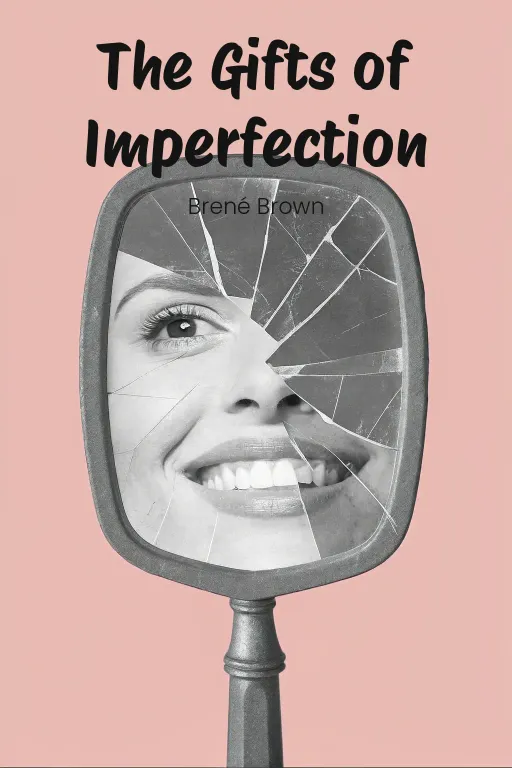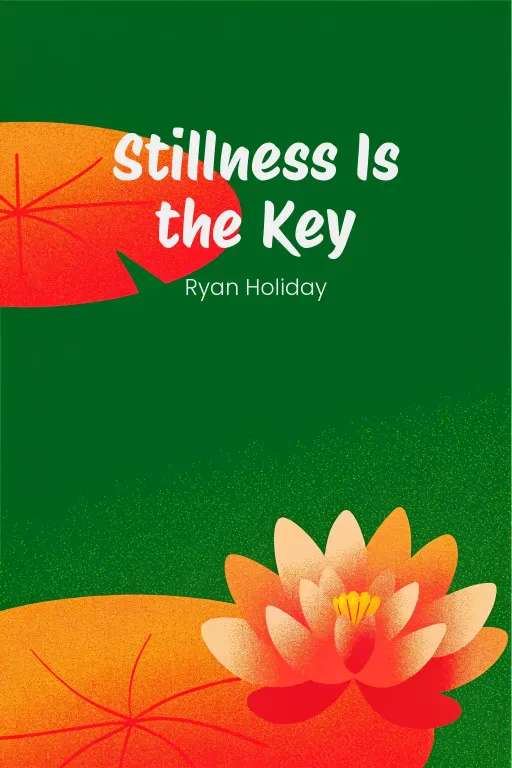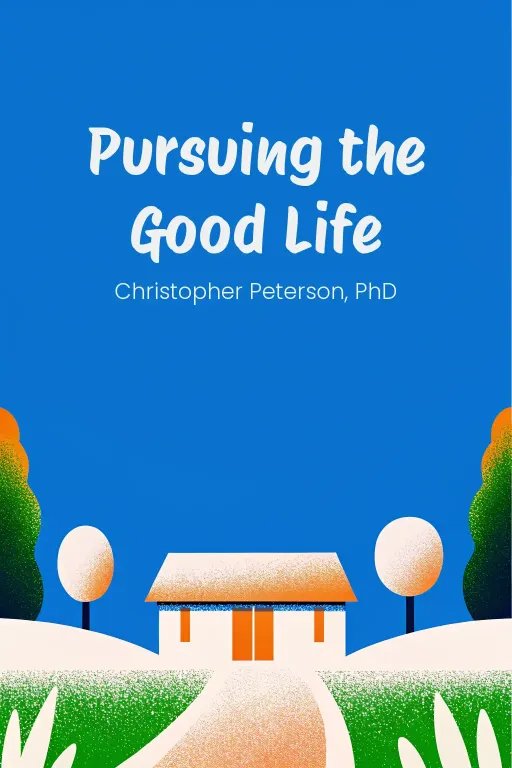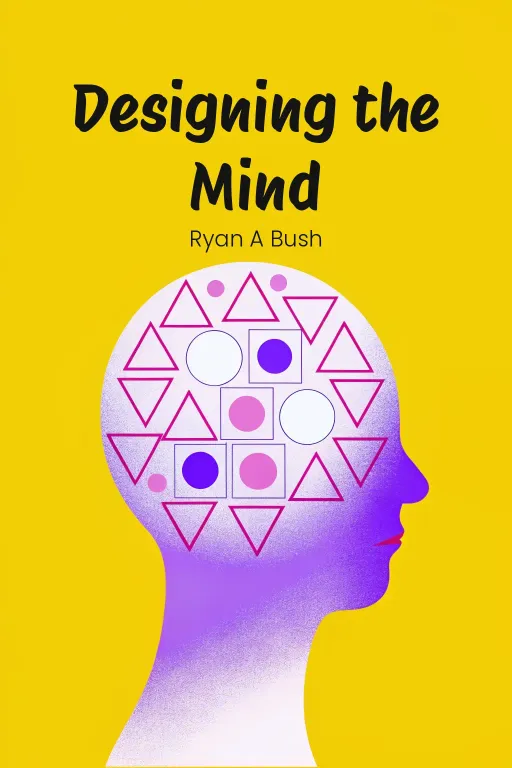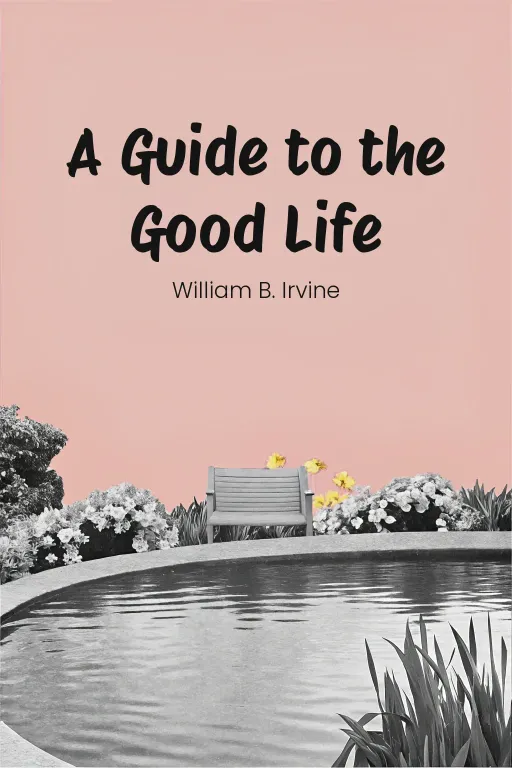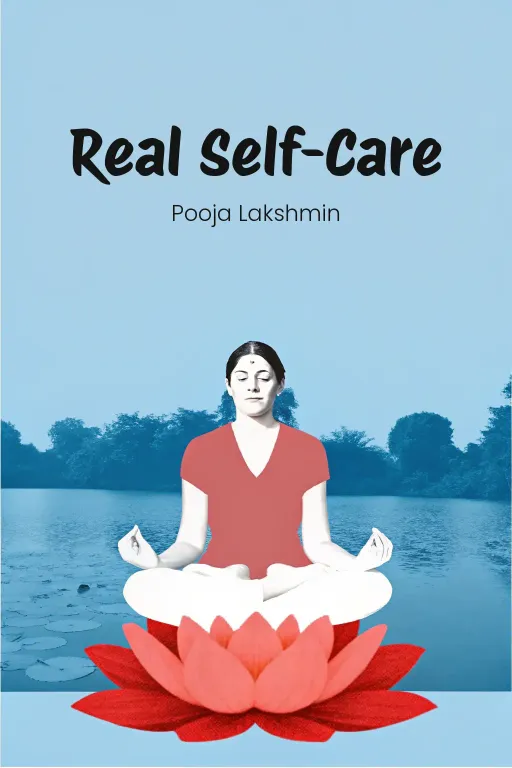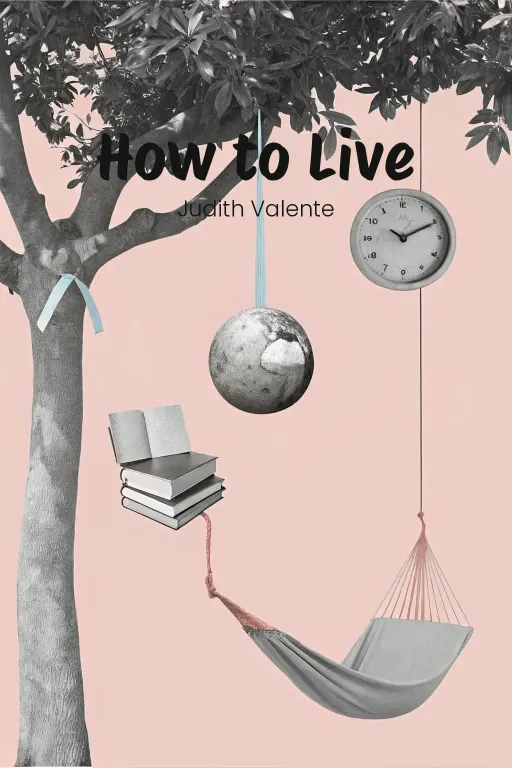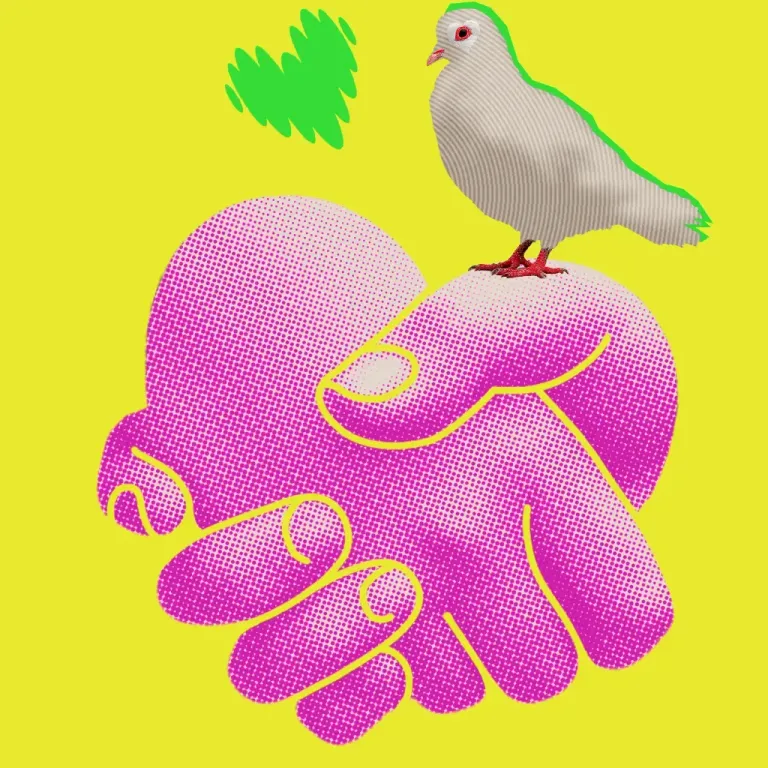
Find Joy in Your Beautiful Mess
Podcast by Beta You with Alex and Michelle
Introduction
Part 1
Alex: Hey everyone, welcome back to the show! Today we're diving into something super relatable: What if the things we try so hard to hide – our mistakes, our flaws, those weird little quirks – are actually the secret to a truly fulfilling and joyful life? Michelle: Yeah, because let’s be honest, who isn't trying to project this image of having it all figured out? Meanwhile, we're all just secretly Googling stuff like, "how to adult properly" at ungodly hours. Alex: Totally! That’s what Brené Brown talks about in her book, The Gifts of Imperfection. After years of studying shame, vulnerability, and worthiness, she discovered that living Wholeheartedly means accepting our imperfections, not fighting them. Her ten guideposts are like a practical toolkit for building courage, self-compassion, and real connections with others. Michelle: So, instead of chasing this impossible dream of "perfection," we're supposed to... what? Embrace the beautiful mess and call it growth? Alright, I'm listening. Sounds a bit chaotic, but I'm definitely intrigued. Alex: Exactly! So, in this episode, we’re going to unpack three big ideas. First, what it truly means to embrace your imperfections and live authentically. Second, what's stopping us – both from society and within ourselves – from showing up as our real selves. And third, those ten guideposts that Brown lays out to help us create resilience, creativity, and joy. Michelle: Okay, I see. So, we've got the core concept, then the emotional roadblocks, and finally, actionable steps we can actually take. Like peeling an onion, layer by layer... hopefully without making me weep uncontrollably, right? Alex: Well, that depends. Are you ready to get vulnerable?
Understanding Wholehearted Living
Part 2
Alex: Okay, let's dive right back in and really unpack the core of all this: wholehearted living. It's really the philosophy that weaves through all of Brené Brown’s work. And the key thing here is, it’s not some one-size-fits-all plan to "fix" ourselves. It’s about letting go of the idea that we even “need” fixing in the first place. Michelle: Right, I’m tracking. But let’s be honest, this whole "worthy just as you are" thing sounds amazing in theory. But how does it hold up, you know, in the real world? We live in a world where our value seems tied to our resumes, our Instagram feeds, our ability to keep a houseplant alive. Alex: Exactly! And that's what makes wholehearted living so, well, revolutionary. It completely flips the script on societal expectations. Fundamentally, it's about truly believing in our inherent worth—no strings attached. Brown calls it a practice, not a destination, and that’s so important. It’s about taking those daily steps that root us in courage, compassion, and real connection. Michelle: Okay, brave words, but let's get specific. Let’s start with "courage." What exactly does Brené mean by “courage” in this context? Alex: Well, for Brown, courage isn't about these big, heroic acts. It’s that quiet bravery to show up as your authentic self, even when you have absolutely no idea how people will react. It’s being willing to be vulnerable, you know? Michelle: Vulnerable? You’re telling me courage and vulnerability are two sides of the same coin? That just… seems backwards. Alex: It does, doesn’t it? We’re so often taught that vulnerability equals weakness, but Brown’s research flips that on its head, showing that vulnerability is actually where connection, creativity, and authentic life are born. She tells this great story about a man who had always wanted to be an artist but was terrified of what people would think. It wasn't until he took a local art class – despite his fears – that he finally felt free. Did everyone love his paintings? No. But just showing up, being imperfectly himself, reignited his passion and even led to new friendships. Michelle: Okay, so the idea is, you put yourself out there, even if it feels like running through a gauntlet of judgment, and you might actually find joy and connection? But where do you draw the line? I can’t just start emotionally dumping on everyone I meet. There has to be risk involved, right? Alex: For sure. Brown is really clear that vulnerability doesn’t mean oversharing with everyone you meet. It’s about intention – consciously choosing when and with whom you let yourself be seen. She emphasizes that the first step towards embracing vulnerability is understanding the inner barriers that are holding us back. Michelle: Ah, I see where this is going – barriers like "What will people think?" or "What if I fail?" Alex: Exactly! Those are shame-based messages that keep us stuck. Brown’s research shows that people who live wholeheartedly actively choose to reject those voices. Instead, they focus on building trust with themselves and others by being authentic – even in the small moments. Michelle: So, it’s less about flipping a switch and more about rewiring our habits. Give me another one of these core practices. Alex: Okay, another cornerstone is self-worth – recognizing that we don’t need to meet some external standard to be "enough." Brown talks about her own struggles with perfectionism, and how it kept her locked in this cycle of self-criticism. She thought being perfect would shield her from judgment, but all it did was prevent her from connecting with people. Michelle: Wait, so perfectionism isn't just an annoying habit – it’s actually harmful? Alex: Harmful because it ties our self-worth to how others see us. When we actively reject perfectionism, we open ourselves up to growth. Brown suggests reframing perfectionism as striving for excellence. It’s ok to strive for growth and get creative, just without the fear of making mistakes or disappointing people. Michelle: That distinction makes a lot of sense, actually. So, instead of chasing that Instagram-perfect life, it’s about being a little messy, a little human – because that’s where real connection comes from. Alex: Exactly! And Brown provides tools to help us do that. Journaling, for example, is a great way to reflect on where fear or judgment might be holding us back. She also emphasizes mindfulness practices, like meditation, which can help us stay present and be compassionate toward ourselves. Michelle: Hang on a second – so you’re saying mindfulness is basically a vulnerability workout? Alex: In a way, yes! Staying present with all of yourself – flaws and all – is a way to build both courage and compassion. And it sets the groundwork for deeper connections with other people. Michelle: Okay, I can see the logic there. But what happens when being vulnerable with others backfires? Not everyone is going to respond with empathy, you know? Alex: That's a fair point, and Brown addresses that too. Vulnerability doesn’t guarantee a positive response every time. But it’s not about controlling how other people react – it’s about staying true to yourself. By embracing your story and your worth, you’ll find the people who are willing to meet you where you are. Michelle: Okay, so it’s a process of sorting out your real friends from the fakes. Vulnerability is like handing someone a flashlight to see the real you. If they shine it back with kindness, great; if they don’t, maybe they’re just not your people. Alex: Exactly! And it all comes back to this core philosophy: wholehearted living is about embracing imperfection – not as a flaw, but as a beautiful part of who we are. It's a daily practice, but the reward is a life filled with meaning, joy, and genuine connection. Michelle: Well, Alex, you’ve given me something to think about – and that doesn’t happen every day.
Overcoming Barriers to Wholehearted Living
Part 3
Alex: Right, so now that we’ve got the foundational stuff down, let’s dive into those barriers that keep us from actually living wholeheartedly. Brené Brown really digs into these—perfectionism, shame, and the expectations society throws at us. Basically, how they stop us from being real and connecting with each other. This section builds on what we've already discussed, tackling the real-world challenges and giving us a bridge to some solutions. Michelle: Okay, so if living wholeheartedly is the dream, are these barriers like the roadblocks from hell? Which one do we tackle first—perfectionism, shame, or societal pressure? Where do we even start with all that? Alex: Hmmm, let’s start with perfectionism, because it’s probably the most misunderstood thing out there. A lot of people wear it like a badge, thinking it just means striving for excellence. But Brené’s super clear that perfectionism is like a shield we use to protect ourselves from being criticized or blamed. Michelle: So it’s not about like, “I want to be the best version of myself.” It’s more like, “If I’m perfect, no one can touch me”? Wow, that sounds… exhausting. Alex: It really is. Brené says perfectionism comes from this false belief that if we can just do everything perfectly, look perfect, live perfectly, then we’ll earn approval and avoid feeling those really bad emotions, like shame. But really, trying to live like that just isolates us and burns us out. She talks about this young professional who was always working—staying late, over-preparing for everything—thinking it would make her bulletproof. What happened was, she ended up battling self-doubt and couldn't connect with her colleagues because she seemed so unapproachable. Michelle: That’s the paradox, right? You think you're building this shield, but really you're building walls between you and everyone else. So, is there a way out of this trap? Alex: Totally. It’s about letting go of the idea that perfect is even realistic. Brown suggests reframing that desire for “perfect” into a drive for healthy excellence. So instead of thinking, “I have to get this perfect to be valued,” you ask yourself, “What if I just did my best and let that be enough?” It shifts the focus from what others think to what you think. Michelle: “Let it be enough.” I mean, that needs to be on a poster somewhere. But then we’ve got shame… How does that factor into all this? Alex: Shame is often the hidden force behind perfectionism. It’s that really painful belief that we’re just not worthy of love and belonging. Unlike guilt, which is about specific actions—“I did something bad”—shame is like, “I am bad.” Brené's research shows that shame grows in silence, telling us to hide parts of ourselves so we don't get rejected. Michelle: And, ironically, the more we hide, the more isolated we feel. Like digging a hole to avoid being judged, then wondering why no one’s around to pull you out, right? Alex: Exactly! Shame isolates us. Brené gives an example of a guy who lost his job and felt so ashamed he couldn’t even tell his wife. He thought it would make him look weak if he admitted he felt like a failure, so he just clammed up. But instead of protecting himself, it just created distance between them. It wasn’t until he finally opened up—told her he felt gutted and scared—that he started to heal and they reconnected. Michelle: That’s powerful, but also kind of terrifying, isn’t it? Just laying yourself bare and saying, “This is me at my absolute worst.” What makes vulnerability so strong? Alex: Vulnerability, Brené says, is the antidote to shame. It means stepping into those awkward, uncomfortable moments and saying, “This is what I'm feeling, and I trust you enough to tell you.” And the amazing thing is, when you’re met with empathy, vulnerability builds connection. It shows you you’re not alone. Michelle: Which brings me to my favorite question: what happens when vulnerability totally backfires? You know, you open up and instead of empathy, you get a shrug or, worse, someone uses it against you later. Alex: That’s a real risk, and Brené doesn’t gloss over it. Being vulnerable isn’t about spilling your guts to just anyone—it’s about being selective. She stresses how important boundaries are. Share your story with people who've earned the right to hear it—people who've shown you empathy and trust. And even if it doesn't land the way you hoped, it's still about standing up for your own worth, regardless of how others react. Michelle: So, it’s almost like you're training your internal compass to measure your worth based on your values, not someone else’s approval. Okay. Let’s move on to societal pressures. If perfectionism and shame are like our inner critics, I'm guessing societal forces are the external ones cheering them on? Alex: Precisely! Society just cranks up the volume on these struggles by setting up impossible expectations. Think about all those flawless images on social media or the really narrow definitions of beauty, success, and achievement we're constantly bombarded with. It’s everywhere you look. Brown talks about how this constant comparison just reinforces the idea that we're not enough, and that creates a breeding ground for self-doubt. Michelle: So, instead of our own internal voice saying, “You’re not good enough,” society hands you a megaphone and shouts it in your ear? Alex: <Laughs> Great analogy. And it’s even worse when you factor in how social media curates perfection— highlight reels that make us compare our messy, real lives to someone else’s carefully filtered moments. The only way to break that cycle is to actively resist it, like limiting your exposure to those comparisons and reminding yourself that what you see online isn’t the whole picture. Michelle: Okay, so we've identified these three barriers. How do we actually tear them down? What's Brown's plan of action? Alex: She lays out three transformative tools: vulnerability, empathy, and self-compassion. Practicing vulnerability, like we talked about, chips away at shame. Empathy—both giving and receiving it—is incredibly healing because it counters shame with understanding instead of judgment. And self-compassion means treating yourself like you would a friend, replacing that harsh inner critic with kindness. Michelle: Self-compassion… I like the sound of that. It’s like having a soft place to land while you're working on all these other things. So how do you even start with that? Alex: Start small. Brown suggests doing things like daily affirmations or journaling about those moments when you’re “really” hard on yourself. Then, rewrite those thoughts as if you were comforting a friend. It’s recognizing that we’re all human—we all screw up, but that doesn’t make us worthless. Michelle: I can see how these tools create a domino effect. More self-compassion probably makes it easier to be vulnerable, which then opens the door for empathy. It’s like a cycle of resilience, almost. Alex: Exactly! And when you combine them, these three strategies cut through perfectionism, shame, and those societal pressures, allowing us to live more authentically. They remind us to celebrate our imperfections because they’re an essential part of who we are.
Practical Guideposts for Wholehearted Living
Part 4
Alex: So, after pinpointing those barriers, what can we actually do to live more wholeheartedly, day to day? That’s where Brené Brown’s ten guideposts come in. They're not just theories; they’re actionable steps for building courage, compassion, and connection. They bridge understanding and action, paving the way for personal and relational growth. Michelle: Alright, finally, the practical stuff! Less theory, more "show me how to make this work without completely falling apart." Alex, where do we even begin applying this? Alex: Let's kick things off with the first guidepost: cultivating authenticity. Brown defines it as letting go of others' opinions to truly embrace who we are at our core. It's about showing up as your genuine self, even when it feels uncomfortable. Michelle: Authenticity sounds great in theory, but what about, say, family members who want to shoehorn you into a specific role? How do you even begin "cultivating authenticity" in a world that often rewards putting on a show? Alex: It starts with small steps. Brown emphasizes the importance of daily reflection. Take the time to identify your core values and see if your actions align with them. She gives an example of a woman who spent years people-pleasing, shaping her choices around others. When she started practicing authenticity, it wasn't a sudden transformation. It was gradual. Saying "no" to things that didn’t fit her values, speaking up when it mattered instead of staying silent. Michelle: So, instead of a full-blown life makeover, she started with small, manageable doses of authenticity. Dipping a toe in the water to test the temperature, so to speak. Alex: Exactly. Brown says authenticity is like a muscle, it gets stronger with practice. And as the discomfort decreases, you start to forge deeper, more meaningful connections. People begin to accept you for who you really are, not the version you think they want. Michelle: Okay, but here's my reservation: Is there a risk people won't accept the real you? I mean, most of us are conditioned to play certain roles to avoid losing relationships or missing out on opportunities. Alex: Absolutely, that fear is valid. But Brown's research points out that truly fulfilling connections can only happen when we allow ourselves to be seen as we are. And yes, some relationships might change, but the ones that remain will be built on mutual respect and empathy. That’s the power of belonging to yourself first. Michelle: Fine, authenticity gets a tentative thumbs-up from me. What's the next guidepost? Alex: Self-compassion. Because cultivating authenticity becomes impossible if you’re constantly beating yourself up for not meeting unrealistic standards. Brown stresses the need to ditch perfectionism and replace harsh self-criticism with kindness. Michelle: Oh, man, perfectionism seems to be the default setting for so many of us. Doesn't society practically encourage it? Performance reviews, social media likes, algorithms promoting the "best" of everything... the pressure is constant. Alex: Exactly, and that’s why self-compassion is about changing how we react to failure or feeling inadequate. Brown tells of a parent obsessed with being perfect, believing she had to be flawless to be "good enough." But when she shifted her perspective, seeing mistakes as ways to grow, she not only felt relief but also built stronger relationships with her family. Michelle: Let me guess: The kids weren't as upset about the missed recital as they were about the emotional distance created by her shame. Alex: Precisely. When she apologized and allowed herself to be human, she modeled resilience for her children. That’s the real beauty of self-compassion - it replaces shame with connection and lets us extend grace to ourselves. Michelle: So, what's the practical advice here? How do we quiet that harsh inner critic? Alex: Brown suggests three key tools: mindful self-talk, which is catching negative inner dialogue and reframing it in a compassionate way. For instance, changing "I messed up, I'm a failure" to something like "I made a mistake, but it doesn't define me." Then, self-care rituals: simple acts of kindness like a walk or reading a book. And finally, perspective-shifting: imagining how you’d talk to a friend in the same situation and applying that same empathy to yourself. Michelle: Basically, keep a mirror handy. Ask yourself, "Would I talk to my best friend this way?" It’s often easier to be kind to others than to ourselves. Alex: Exactly, but practicing self-compassion changes that instinct. And the impact is huge – it improves how we see ourselves and encourages more empathy toward others. Which leads us to the third guidepost for today: cultivating gratitude and joy. Michelle: Ah, the dynamic duo. But how do we actually get to gratitude when life feels overwhelming? It's easy to appreciate the good things when life is smooth, but what about when it isn't? Alex: That’s the core of Brown’s viewpoint. She believes joy is an intentional choice, not just a result of good circumstances. It takes effort to focus on what we have instead of scarcity or fear. One technique she mentions is gratitude journaling – writing down three things you’re grateful for each day. Michelle: Yeah, but couldn't that get repetitive? Like, after a week or two, you're just listing the same things – coffee, family, working Wi-Fi, right? Alex: It’s less about the items, more about the practice. Brown's research indicates that pausing to name your gratitude rewires your brain to notice small joys you might've missed. It's a shift in mindset that helps you weather life's challenges. She shares a case of a business executive so focused on his failures that joy felt impossible. But simply listing small moments, like a shared meal or a kind conversation, changed his perspective over time, making him feel lighter and more present. Michelle: So, gratitude isn't just about happiness – it's like internal armor. A buffer against fear and frustration. But how do you keep it real? How do you avoid just going through the motions? Alex: By bringing mindfulness into the practice. Pausing to really notice and appreciate what's working in your life. Instead of just writing down "a sunny day", let yourself feel the warmth of the sun on your face. It moves gratitude from a checklist item to a real experience. Michelle: Sounds suspiciously like slowing down. Which conveniently leads to another guidepost, right? Play and rest – letting go of productivity as the only measure of your worth. Alex: Exactly. We're so busy that balance goes out the window. We think doing more makes us more valuable, but Brown says rest and play are essential for well-being. They're not luxuries, they’re vital for creativity, connection, and sanity. Michelle: You mean a Netflix binge without guilt? That's actually allowed? Alex: Allowed and encouraged, as long as it’s truly rejuvenating! Brown highlights how we’ve forgotten to prioritize leisure in a meaningful way. By intentionally making time for play and rest, we recharge, making us more effective and fulfilled. Michelle: So grab the popcorn, the remote, and call it therapy? Sounds like a plan. Alex: And that’s the key point: these guideposts aren’t just concepts to admire from a distance. They’re practical, actionable strategies designed for real life. Embracing them allows us to live with more connection, fulfillment, and, ultimately, joy.
Conclusion
Part 5
Alex: Okay, so to sum up, Brené Brown’s “The Gifts of Imperfection” really pushes us to ditch this impossible idea of perfection and, instead, look inward. It’s about focusing on cultivating courage, showing compassion, and building genuine connections. By embracing vulnerability, rethinking our perfectionism, and breaking down the walls of shame, we can start living more authentically. Her ten guideposts? They're not just feel-good advice, they're “really” a practical guide to weaving these ideas into our everyday lives. Michelle: Right. And here's the core message, isn’t it? We are already worthy as we are—flaws and all. It's not about achieving some idealized self, but showing up genuinely. Alex: Exactly! So, here’s a thought: pick one of those guideposts and give it a try. Maybe start with a simple gratitude exercise, or allow yourself some guilt-free downtime. The real magic is in consistently putting these into practice. These aren't quick fixes, they’re daily habits that, over time, create a more fulfilling life. Michelle: And hey, if living authentically means occasionally dancing like nobody's watching, or, let’s say, owning up to a less-than-perfect soup… Well, I’m in. Alex: That's the attitude! Because when we embrace our imperfections, we actually start to uncover the joy that’s kind of hidden within the chaos. Michelle: Thanks for tuning in today! And listen, remember this: you are enough, even on your absolute worst days. Alex: We’ll catch you next time. And remember, joy, connection and meaning are all within your reach once you release the need for perfection.

